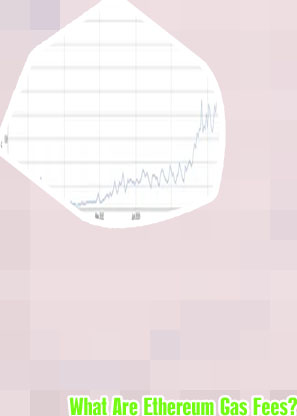

Navigating the world of Ethereum fees can be challenging, especially with the constantly changing gas prices and network congestion. To help you better understand and manage Eth fees, here are three articles that offer valuable insights and tips on optimizing your transactions on the Ethereum network.
Ethereum gas fees have been a topic of concern for many users, as they can fluctuate greatly and impact the cost of transactions on the network. To help address this issue, we have compiled a list of four articles that provide insights and solutions to reduce Eth fees. These articles cover various strategies and tools that users can utilize to optimize their gas fees and make their transactions more cost-effective.
Ethereum gas fees have been a hot topic of discussion among cryptocurrency users, especially during times of high network congestion. For those looking to optimize their transactions and reduce costs, there are several tips and tricks that can be employed.
One of the most effective ways to lower gas fees is to simply wait for periods of lower network activity. By monitoring Ethereum gas trackers and choosing to transact during off-peak hours, users can take advantage of lower fees. Another strategy is to use layer 2 solutions such as Loopring or Polygon, which offer faster and cheaper transactions compared to the main Ethereum network.
Optimizing gas usage is also key to reducing fees. This can be done by batching transactions together, using the most efficient contract functions, and avoiding unnecessary smart contract interactions. Additionally, setting the gas price manually rather than relying on the default setting can help users save on fees.
In conclusion, understanding how gas fees work and implementing these tips and tricks can significantly lower transaction costs for Ethereum users. By staying informed and utilizing the right strategies, users can navigate the complexities of gas fees with ease and efficiency.
This article is important for the topic of Ethereum gas fees as it provides valuable insights and practical advice for users looking to optimize their transactions and reduce costs.
Understanding Ethereum gas fees is crucial for anyone looking to participate in the world of decentralized finance. Gas fees are essentially the cost required to perform transactions on the Ethereum blockchain. This comprehensive guide aims to demystify the concept of gas fees and provide readers with a deeper understanding of how they work.
One of the key factors that determine gas fees is network congestion. When the Ethereum network is busy processing a large number of transactions, users have to pay higher gas fees to have their transactions prioritized. This has been a point of contention within the Ethereum community, with many users expressing frustration over the unpredictability of gas fees.
Several solutions have been proposed to address the issue of high gas fees on the Ethereum network. One such solution is the implementation of layer 2 scaling solutions, which aim to improve the efficiency of the network and reduce transaction costs. Additionally, the upcoming Ethereum 2.0 upgrade promises to address some of the scalability issues that have plagued the network in the past.
Overall, understanding Ethereum gas fees is essential for anyone looking to navigate the world of decentralized finance. By staying informed and keeping up to date with the latest developments in the Ethereum ecosystem, users can make more informed decisions when it comes to interacting with the network.
Gas fees on the Ethereum network have been a hot topic of discussion among cryptocurrency users. With the increasing popularity of decentralized finance (DeFi) applications and non-fungible tokens (NFTs), the cost of transactions on the Ethereum blockchain has soared to new heights. This has led to the need for reliable gas fee estimators to help users optimize their transaction costs.
One of the best gas fee estimators available is GasNow, which provides real-time gas price predictions based on current network conditions. GasNow takes into account factors such as network congestion, pending transactions, and gas prices on various exchanges to provide users with accurate fee estimates.
Another popular gas fee estimator is EthGasStation, which offers a user-friendly interface and detailed information on gas prices, transaction speeds, and recommended gas prices for different types of transactions. EthGasStation has become a go-to tool for many Ethereum users looking to save on transaction fees.
For those looking for a more customizable gas fee estimator, Gas Tracker is a great option. Gas Tracker allows users to set their own gas price preferences and receive notifications when gas prices fall within their desired range. This level of customization is ideal for users who want more control over their transaction costs.
Smart contracts have revolutionized the way transactions are conducted on the Ethereum blockchain. However, one of the biggest challenges facing smart contract developers is the high cost of gas fees associated with executing these contracts. Gas fees are essentially the cost of using the Ethereum network, and they can add up quickly, especially for complex smart contracts.
In order to minimize gas costs, developers need to optimize their smart contracts. One way to do this is by reducing the number of computational steps required to execute the contract. This can be achieved by simplifying the logic of the contract and eliminating unnecessary operations. Another strategy is to use data structures that are more gas-efficient, such as arrays and maps instead of loops.
Furthermore, developers can optimize their smart contracts by using more efficient coding practices, such as using inline assembly code or leveraging precompiled contracts. Additionally, developers can take advantage of gas estimation tools to accurately predict the gas costs of their contracts before deploying them on the Ethereum network.
Overall, optimizing smart contracts to minimize gas costs is essential for ensuring the scalability and cost-effectiveness of decentralized applications on the Ethereum blockchain. By implementing best practices and leveraging advanced coding techniques, developers can reduce the financial burden associated with gas fees and create more efficient and affordable smart contracts.
